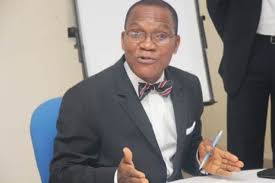
The Nigerian Senate should approve President Muhammadu Buhari’s request for authorisation to borrow $30 billion (about N9.61 trillion), and should do so quickly, the Director General, Debt Management Office, Abraham Nwankwo, has said.
The Senate turned down the president’s request on Tuesday, asking for all relevant documents to be submitted.
But, Mr. Nwankwo, who spoke on a Channels TV guest program, said the loan was so important and the government needed to take advantage of the soft terms of the loans covering three years, to help address the huge infrastructure deficit in the country.
The DG said the $30 billion was actually for a three year-period, running from 2016 to 2018, to be repaid in 20-30 years’ time.
With this arrangement, he said it would not be difficult for the country to repay.
Although the DMO boss said he had earlier advised the Federal Government not to exceed $22 billion limit in its loans from 2017, he said the $30 billion was comparatively lower.
“When you are in the kind of economic situation the country has found itself, you have to decide where you want to start addressing the problem. The most critical point to start is to deal with infrastructure problem.
“If you deal with infrastructure problem, the cost of power, transportation and most other goods and services will be forced down on the long run. The development will have a significant impact on the price level in the economy,” he said.
Highlighting some of the other attractive components of the proposed loans, Mr. Nwankwo said that the low concessionary interest rate, at about 1.5 per cent, was different from previous loan arrangements (under previous administrations) with the Paris Club of creditors, which came with floating interest rates as high as 18 per cent.
In his request to the National Assembly, President Buhari had said the loans, which also include a $575 million World Bank facility, would be for projects cutting across key sectors of the economy.
On how the $30 billion would be spent, Mr. Nwankwo said $10 billion would be spent per annum for three years, targeted at building infrastructure in all states of the federation, with the main focus on power generation, rail and road renovation and construction.
The projects, with special emphasis on infrastructure development, were in the agriculture, health, education, water supply sectors as well as those to facilitate growth in the economy and employment generation, poverty reduction through social safety net programs and governance and financial management reforms.
Mr. Nwankwo also said that the facility would help revive strategic infrastructure like railways, to smoothen movement of heavy goods across the country.
With adequate infrastructure, he said the impact on the economy would be felt by all Nigerians, as the general price level (the consumer price index measuring price level and the rate of inflation) would be brought down.
“The way to go is to have adequate infrastructure, power road, transportation ICT. All these would make the cost of production in the economy much lower, while the cost of goods and services will be lower and inflation forced down. When inflation is down, monetary policy rate will be lower, translating to a lower lending rate,” Mr. Nwankwo explained.
– Premium Times











